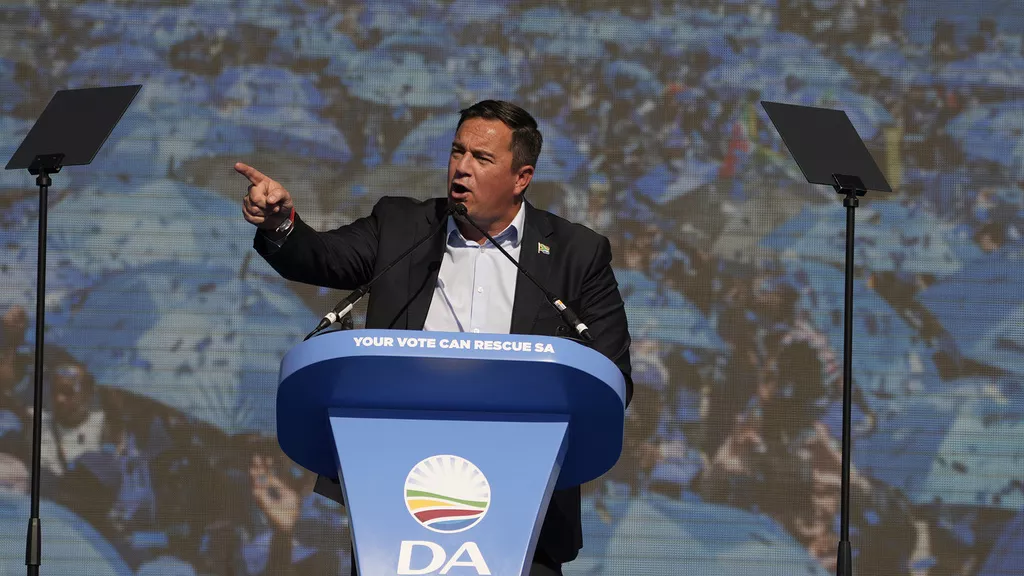Conflicts are expected between partners in South Africa’s new coalition government, but they will not be “catastrophic” for the country’s hopes of recovery, the leader of the country’s second-largest political party said Thursday.
John Steenhuisen ‘s Democratic Alliance unexpectedly joined a coalition government led by the long-ruling African National Congress (ANC) following national elections in May, turning its sworn enemies on both sides of the South African political spectrum into partners in government.
Analysts have predicted that labour relations will be difficult, and Mr Steenhuisen has spoken of a “marriage of inconveniences” for Africa’s most advanced economy, which is burdened by problems of poverty , inequality, unemployment and failing state-owned enterprises.
Mr Steenhuisen said there would likely be many moments of disagreement between his centre-right DA party and the left-wing ANC over the next five years of the legislature in order to end South Africa ‘s “deep crisis” , and that this had to be accepted.
Historic agreement
“Conflicts over policy do not necessarily pose an existential threat to government ,” Steenhuisen said in a lunchtime speech to a largely elderly audience at a posh Cape Town sports club. “There will be conflicts. There will be policy differences.”
The ANC and the DA have come together with eight other smaller parties to form what has been called a government of national unity after weeks of laborious negotiations following the May 29 election. The historic deal came after the long-dominant ANC lost its parliamentary majority for the first time since apartheid ended in 1994, forcing it to find coalition partners to stay in government. South Africa has found itself in uncharted political waters.
The coalition government was finally formed in late June and faces the challenge of stemming South Africa’s staggering 32 percent unemployment rate, the highest in the world outside a war zone. South Africa’s economy has barely grown in the past decade, and Mr. Steenhuisen, the former opposition leader who is now agriculture minister, said his party was focusing exclusively on those issues in government.
“Economic growth and job creation. Growth and jobs. My party and I will not let anything stand in the way of that ,” he said.
The conflict that Mr Steenhuisen has raised between the DA and the ANC could come to a head on Friday if President Cyril Ramaphosa , the ANC leader, signs into law an education bill that the DA strongly opposes, as Mr Ramaphosa has said he would.
“Long list”
Mr Steenhuisen said his party would take his government to court over the law if Mr Ramaphosa signed it and accused the ANC of “running roughshod” over its coalition partners.
The DA is also deeply opposed to a national health law that was introduced before the election and that will make the government the sole provider of health care. Critics of the law, including the DA, say it will eliminate private health care companies rather than improve public health care. The DA has also vowed to challenge the law in court, Steenhuisen said, another issue over which the two main parties that hold the fate of the coalition are at loggerheads.
However, Mr Steenhuisen said there was also “a long list” of policies that the ANC and DA had agreed on in the two and a half months since the coalition government was formed, mainly regarding reforming an economy that is supposed to be a leader in Africa and the wider developing world, but which has only recorded GDP growth of 1.9% in 2022 and 0.6% last year.
Mr Steenhuisen said Mr Ramaphosa and the ANC had “no better ally than the Democratic Alliance” when it came to economic reforms aimed at creating jobs and tackling poverty.
